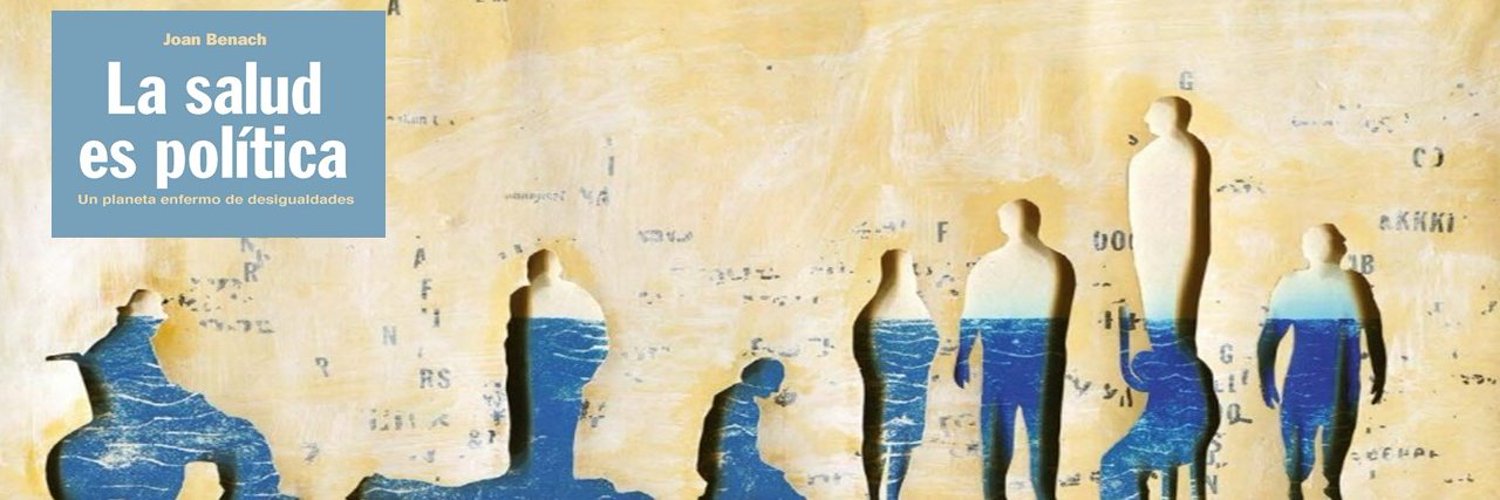The pandemic is deepening health inequalities, according to the new book by Joan Benach
The pandemic is deepening health inequalities, according to the new book by Joan Benach
The work La salud es política. Un planeta enfermo de desigualdades – ‘Health is politics. A planet ailing from inequalities’ offers a compilation of some of the analyses, thoughts and ideas that the UPF full professor and director of the GREDS-EMCONET Research Group has developed over more than a decade.

“The future of life and health is in our minds and in our hands. The choice is ours”. With this sentence, an exhortation to act with courage, intelligence and persistence to move towards a radical change of social model, Joan Benach ends his introduction to La salud es política. Un planeta enfermo de desigualdades (Icaria Editorial, 2020). The work aims to provide some answers through analyses, reflection and ideas that the author has developed over more than a decade of research.
“A naive conception of human progress or an oversimplified scientific and technological vision does not enable properly assessing the overall reality of the planet or of all the living beings that inhabit it”.
Joan Benach, full professor of Department of Political and Social Sciences (sociology area) at UPF, director of the Research Group on Health Inequalities, Environment - Employment Conditions Network (GREDS-EMCONET) and deputy director of the JHU-UPF Public Policy Center, has selected several essays he has written and interviews that can help understand such crucial issues for public health and equality as social policy and inequality, neo-liberalism and the capitalist system, social factors like unemployment, precarious employment and the commodification of health, the ecological crisis and the recent covid-19 pandemic.
Some of the texts pertaining to the work have involved the collaboration of several public health experts, colleagues and friends of the author, most of whom have links to GREDS-EMCONET: Clara Valverde (activist and writer, author of the prologue), Juan Manuel Pericàs (author of the epilogue, also involved in two chapters), Carles Muntaner (full professor of Public Health at the University of Toronto), Eliana Martinez-Herrera (professor at the University of Antioquia in Medellin), and Pere Jódar (professor at the UPF Department of Political and Social Sciences, in the sociology area).
Joan Benach upholds that there is no doubt that capitalism has generated huge material progress, but it has not solved but has rather exacerbated many of the basic material, cultural and spiritual needs of much of humanity, though he points out that “a naive conception of human progress or an oversimplified scientific and technological vision does not enable properly assessing the overall reality of the planet or of all the living beings that inhabit it”.
Government decisions shape the political and eco-social determinants of health
The book consists of sixteen chapters (in addition to the prologue and epilogue), structured under three headings: Capitalism, eco-social crisis and inequality, Work and health, and the covid-19 pandemic, which make it clear that health is marked by politics and that social, environmental and occupational determinants of health are shaped by government decisions and a complex web of socioeconomic forces.
In the first part, the author reflects on health inequalities, which he considers “the biggest epidemic of the 21st century”, whose origins lie in the socio-ecological crisis of capitalism and systemic contradictions inherent in neoliberal capitalism, that are detrimental to our health and our minds.
“Unemployment, from the public health standpoint, can be described as a chronic social disease that has acquired epidemic proportions”.
The section on work and health addresses issues such as unemployment, which the author says “from the public health standpoint, can be described as a chronic social disease that has acquired epidemic proportions”, and “increases social inequality, poverty, citizen insecurity, xenophobia and racism”. Another social determinant he pursues is precarious employment, “a corrosive issue within our biographies” that “destructures everyday life and prevents planning for the future, creates insecurity and suffering, alienation, frustration, economic exile and hopelessness, submission and fear”. Regarding health, the texts analyse the processes associated with its commodification and the serious consequences this has had on the health of citizens and the generation of inequalities.
In the last section, which focuses on the pandemic, Joan Benach analyses how the official spin on the coronavirus hides a systemic crisis, and he notes that “the notion of progress, momentarily interrupted by the covid-19 pandemic, remains intact in the hegemonic vision of the elite, social culture and much of the popular imaginary”. He also reflects on the deaths at care homes and the commodification of the social and health services, and how lockdown has neglected a series of essential actions required from the discipline we call “public health”, among the which are vigilance, education and community action. The title of the final chapter, in the form of an interview, sums up the desire of the author regarding covid-19: “We must take advantage of this pandemic to make radical social changes”.
